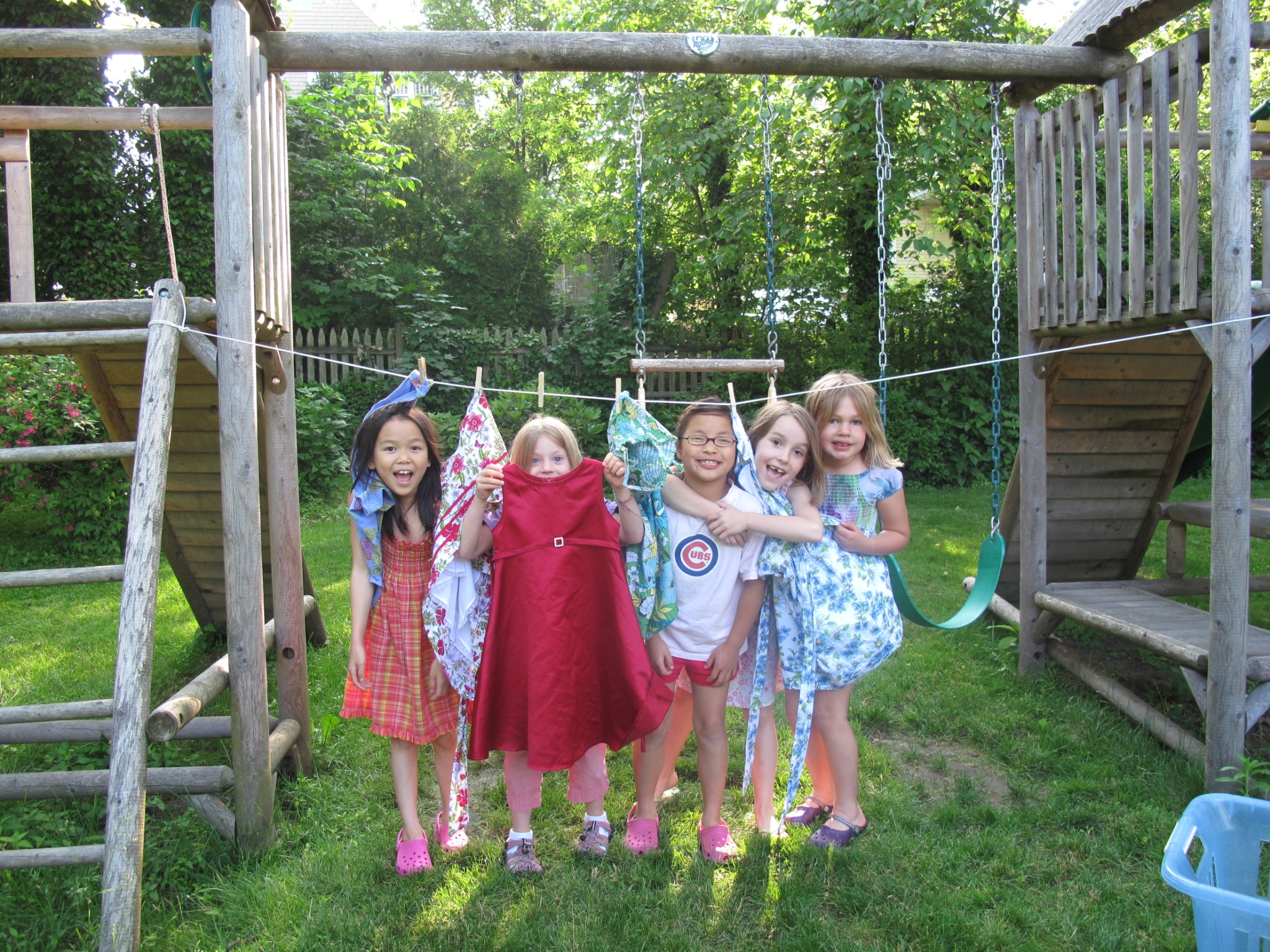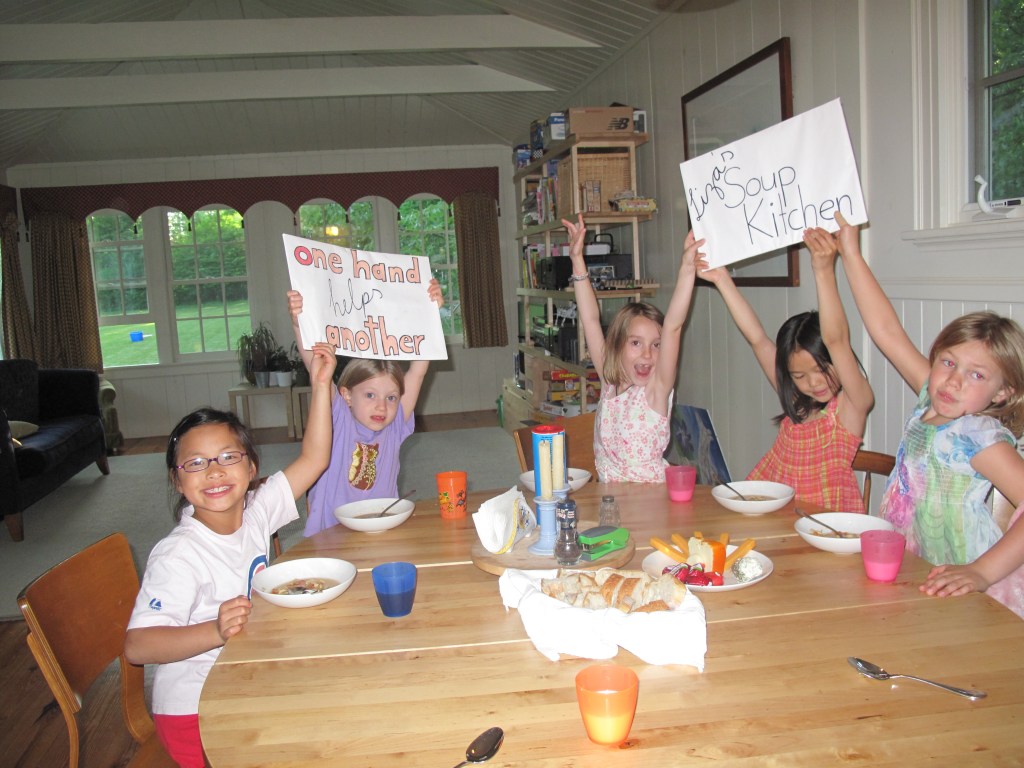Daughter of the Depression
Weathering Hard Times with Grit and Gratitude

Whenever my teenage daughter tells people that she celebrated her seventh birthday with a Depression-themed party she gets a reaction. Not “depression,” she quickly clarifies. “The Depression.” That usually doesn’t help — and more explanation is needed.
Admittedly, it sounds weird. But Liza had a long and deep relationship with the Great Depression because she dearly loved Kit Kittredge, her American Girl doll. I had resisted the American Girl doll fad for a long time, mostly because they seemed extravagant, somewhat cultish, and until then, Liza had not expressed a huge interest in dolls. But she was persistent, and I began to waver.
One June evening as she drifted off to sleep upstairs, I whispered into the phone with a woman who answered my call to the American Girl 800 number. Unschooled, I wanted to know what my options were and she helpfully filled me in. After asking for some details about Liza, who was about to turn six, she recommended Kit Kittredge, a resourceful girl who “grew up” during the Depression. Kit’s signature quality was her ability to “weather hard times with grit and gratitude,” which seemed like a reasonable lesson. So I rationalized the cost of Kit Kittredge as an educational one for Liza’s birthday gift that year — a doll and a history lesson wrapped up in one — and have never regretted it.

In the months that followed, Liza became a young expert on the Great Depression, thanks in large part to the excellent Kit-themed books that we couldn’t help but order, a worthwhile next step and much cheaper than the initial investment. She learned about the scores of people who lost their jobs and had their homes foreclosed on. With Kit as her guide, she learned that during the Depression people started gardens, cooked with cheaper ingredients, and cut back on purchases. Instead of buying a new dress, for example, Kit’s mother would economize by letting down the hem of an old dress, adding decorative rickrack to mask the faded line that marked the former length. These lessons had an impact: Liza started to become more helpful in the kitchen and saved a secret stash of quarters in case the economy suddenly tanked. She wondered if she might start selling eggs and asked if we should consider taking in boarders, just as Kit’s family had in order to raise extra cash. I explained to Liza though neither was necessary right then, we could consider those options if we hit hard times.
Just a few months after Kit became a part of our lives, the Kit Kittredge movie came out. I have a sweet and indelible memory of young Liza sitting in a movie theater seat and holding Kit upright on her lap — she didn’t want her doll to miss a single frame. And Liza didn’t miss any of the lessons in the movie, including the poignancy of Kit recognizing her unemployed father in line at the soup kitchen where she was volunteering.
I’ll take the credit — and the blame — for turning the Depression into a theme for her birthday the following year. Collectively my three kids had attended or been the object of many themed birthday parties by then, some more extravagant and well-executed than others. To date, no one had been inspired by the Great Depression, but Liza and I were. We created competitively timed games around hanging dresses on a clothesline, tossing hot potatoes, and drying lettuce in an old fashioned lettuce spinner. We hung signs in our “soup kitchen” and of course we served it, along with brown bread. Liza’s cake had a rickrack icing border, and her party bags were brown paper and included sewing notions. Rickrack, I was pleased to learn, was still widely available at fabric stores, and all the guests took some home.

I like to think Liza’s friends learned something at that party, as one little girl inquired quite early in the festivities: “What is the Depression?” The birthday girl was happy to oblige with a detailed explanation. All in all, the party was unconventional but probably made an impression. None of the parents complained either.
In a few months, Liza turns eighteen. Kit and her fellow doll/friend Ruthie (yes, I succumbed to a second American Girl doll) are carefully packed away along with the accompanying books and other Depression doll accoutrements. Liza has since taken numerous American history classes and deepened her understanding of the Great Depression. She’s mentally equipped for the economic crisis we’re facing now, even if one wasn’t on her mind just six weeks ago. Kit would likely be pleased to see that Liza is facing the current uncertainty with as much “grit and gratitude” as she can muster, not always easy now that she’s finishing her senior year of high school from a computer in her bedroom. But she hasn’t suggested taking in boarders, yet.




You must be logged in to post a comment.